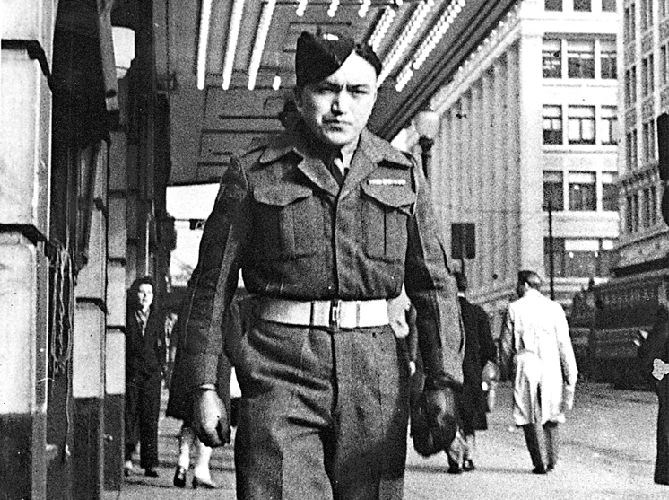Antoine Leon Ketlo rarely talked about his time serving in the Second World War.
Sterling Ketlo said his father, better known as Tony, numbed himself to those memories when he was sober.
"The only time he talked about it was when he was drunk," said Sterling.
The memories of killing in battle traumatized Tony.
"(He said it) was him or the enemy. The hard part was that his enemies were 15 or 16 years old," said Sterling.
"He used to say it was either the little boy or him."
Tony served in the Regina Rifles of Canada with the 3rd Canadian Infantry Division and earned four medals by the time he was honourably discharged in 1946.
One of the more traumatic memories happened when Tony's injured sergeant passed him control of the group he was fighting with.
"When he did that the majority of his battalion died. So he took it to heart that it was his fault," said Sterling of Tony, who would have also been in or barely out of his teens. "That really hit him mentally and emotionally. I guess that's where he got a lot of trauma from."
In Sterling's eulogy for his father, he noted "(t)he memory of the war was always with him - always in the background - he never went into details about his experiences, yet you could tell that the memories were always with him."
Months before Tony died in September 1994, he wrote some of his memories down in a two-page letter.
On D-Day, June 6, 1944, Tony was part of the reinforcements.
"We came into immediate contact with the enemy forces," he wrote.
"There was 29,000 sorties of all crafts on top of us. We didn't have 29,000 aircrafts but the air force unloaded their bombs and fired their ammunition and refueled and came back.
"The skies were black with aircrafts, the drone of air force crafts were (coming) from the ground, but then we were not tourists. We had no time to look up into the skies, we knew they were there."
Tony was underage when the war started, but he was determined to volunteer, Stellat'en Chief Archie Patrick recalled.
Tony's father Leon was a devout Catholic and when he learned of Tony's plans, he left Fraser Lake for the Chilliwack base to retrieve his son.
"When Tony heard about this, he lost it. He wanted to go to war," said Patrick.
"He destroyed the captain's office, threw desks around."
Tony's statement of service issued by the Public Archives Canada lists him as born in 1924 and enlisting in September 1943, but Patrick said Tony was 16.
Tony was not a big man. Patrick guessed he would have been five-foot-six at most.
"It took five big beefy military police to stop him," said Patrick with a chuckle, but eventually Leon relented. The captains respected Tony's desire to fight and so there were no charges.
That earned him respect among the men, Patrick said, that he was a "unique guy and a guy to be reckoned with."
When Tony first landed in Italy, Patrick said he met up with fellow Stellat'en fighter Pierre Thomas, who later died in battle in 1944.
They were such close friends that Tony kept the notice from the military of Thomas' passing. Tony was one of many Stellat'en who served, including Freddy Isaac, Sam Casimir, Edward Ketlo and Albert Jardine, who like Thomas, died in the war.
Among the Stellat'en First Nation, where Tony served as chief for two years in 1974, the father of eight was described as generous and well-liked.
Peter Luggi remembered that each Christmas, Tony would use a sleigh to hand out gifts to the local children.
Sterling and his sister were fitted with reindeer horns on their heads.
"He was quite the character," said Luggi.
Tony wrote of veterans fighting for their country, so that its people could have hope that "peace of mind and freedom of speech and creed may be attained one day soon."
In that letter's final words, Tony wrote "Have a go Canada and goodbye."



